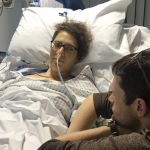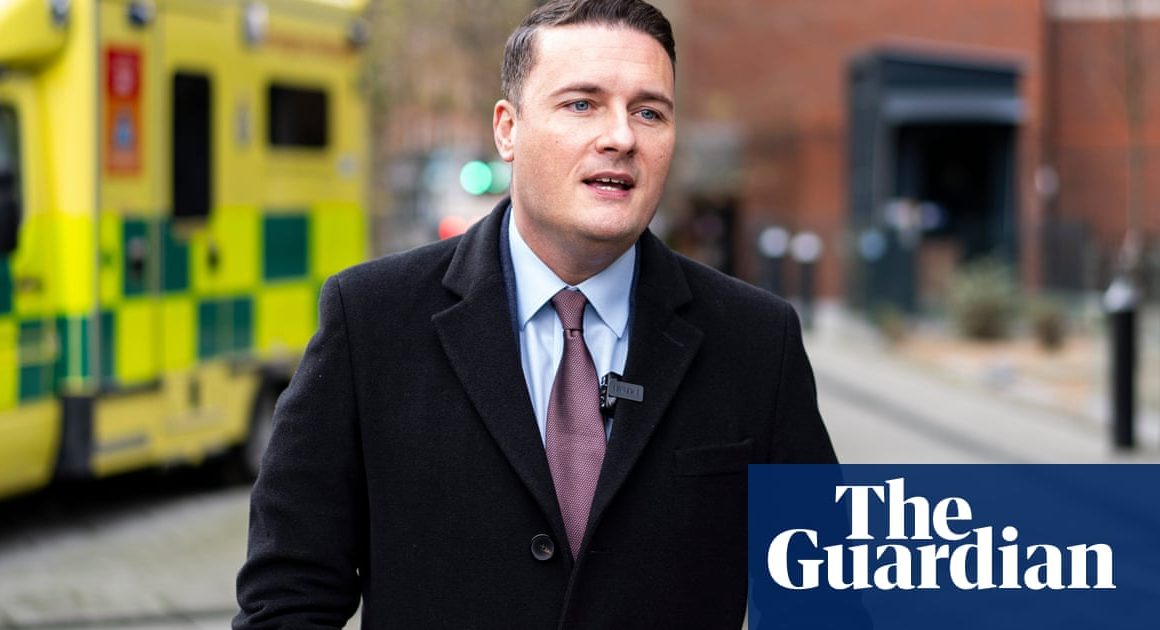Documentary-maker Poppy Jay’s new film has a title guaranteed to make my hackles rise, and perhaps the hackles of many others in a country that polls nearly 90% support for a woman’s right to terminate a pregnancy: Young, British and Anti-Abortion. It’s an investigation into gen Z’s increasing presence among those who would seek to circumscribe or cancel that right. It looks at how they are looking to reposition the debate as a human rights issue rather than a religious one, and how they are emboldened by the overturning of Roe v Wade in the US two years ago. Jay meets a variety of young activists who hope that once again when the US sneezes, we will catch cold.
Eden McCourt does most of her work for Abortion Resistance through TikTok. She says that though she is religious (a Google search reveals that she is a writer for the Catholic Herald), her views are secular and were formed largely through the experience of her parents refusing to terminate a pregnancy because the foetus had a severe, life-limiting genetic disorder. Instead her mother gave birth to her sister, Josephine, who died when she was four, but was “the happiest child I ever met”.
Madeline Page is the director of the Alliance of Pro-Life Students and tours universities, bolstering the troops and encouraging them to convert fellow youngsters so that they can move out into the wider world with their minds already correctly made up and on into positions of power. She, too, is religious, but says she was pro-life before she found her faith.
James, 22, is the most traditional anti-abortionist. An evangelical Christian, he has volunteered with the Centre for Bio-Ethical Reform UK (an offshoot of the original organisation in the US) for the past three years and wants “the nation to believe [abortion] is an abomination”.
Jay interviews them, and others, allowing them plenty of space to air their beliefs, time to persuade her or anyone watching who might be persuadable. Eden especially is personable and charming, and you wait with interest to hear the new generation’s views. “I don’t think equality for women looks like dead children,” she says. “The feminist movement has been hijacked by the idea that in order to be free and equal to men, women have to have the choice of abortion.” She acknowledges that social problems (poverty, abusive relationships, lack of support) are the root cause of many women’s unwanted pregnancies and the consequent desire to end them, but it is those problems that need to be solved, not the children who need to be punished. She does not have any practical solutions to these problems.
Page, too, indirectly blames feminism. “For women to feel like in order to progress in their career, to have a home, be in a stable financial situation, they have to have an abortion – we are completely failing women.” This is badly worded (presumably even Page doesn’t think you actively require an abortion to move through modern life), but it’s a sign of the kind of thinking, somewhere between “magical” and “muddled”, that is going on beneath. Jay pushes her on what should happen in various scenarios. “I just guess in my utopia that wouldn’t happen,” Page laughs. Jay pushes again. “Do we force them to have a child they don’t want and won’t love?” No answer comes. The silence, as always when idealists, ideologues or any combination of the two are asked to think through their positions and answer for the consequences, is deafening.
Because what answers are there, really, if you believe – like these three – that life begins at conception and that those two conjoined cells immediately trump everything about the woman carrying them; her mental and physical health, her happiness, her present, her future, her bodily integrity and autonomy, her relationships (including with the children she already has), her desire to live the life she wants and not have it derailed by a mistake, or a rape? It is good to make them think and to leave them floundering in a sea of possibilities that do not fit their world view (such as when Jay points out the large proportion of women who are already mothers who have abortions so as not to spread their resources too thinly). But it leaves this core devaluing of women’s lives intact.
I remain unconvinced, judging by the small turnouts to rallies and the resistance from members of the public when the activists are out and about, that Jay has truly uncovered the beginnings of a new wave of danger for reproductive rights. I would like to think gen Z remains resistant to both religious and supposed secular arguments, that they can see through obvious nonsense, that they would strip the melodrama from a statement like “equality for women doesn’t look like dead children” and know that equality looks exactly like being able to control your life and your body, up to and including pregnancy – otherwise we have nothing. But I look at the state of women’s rights now and can think only how wrong, how complacent I have been before.












